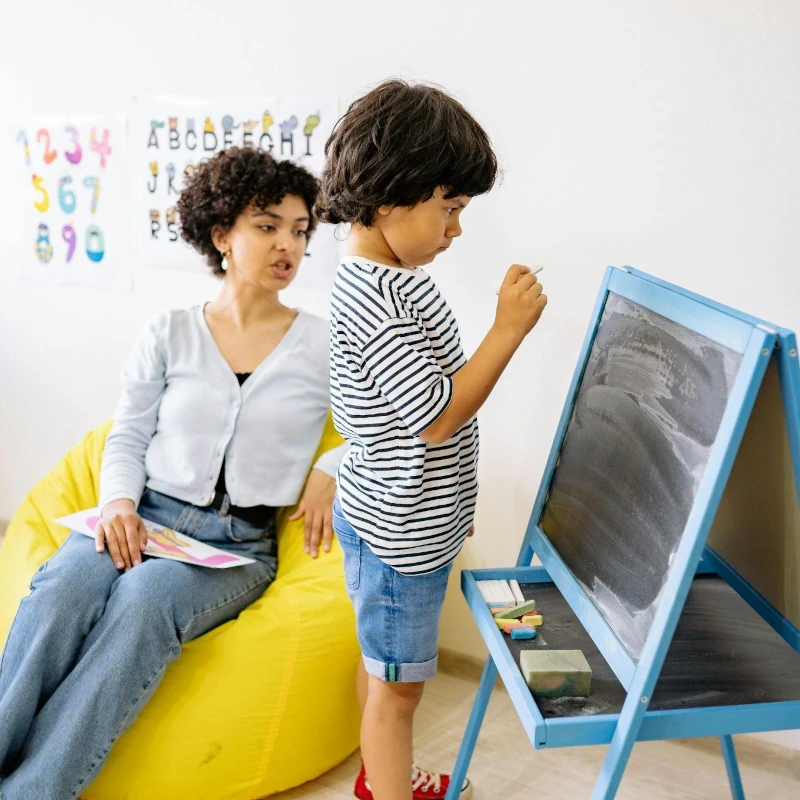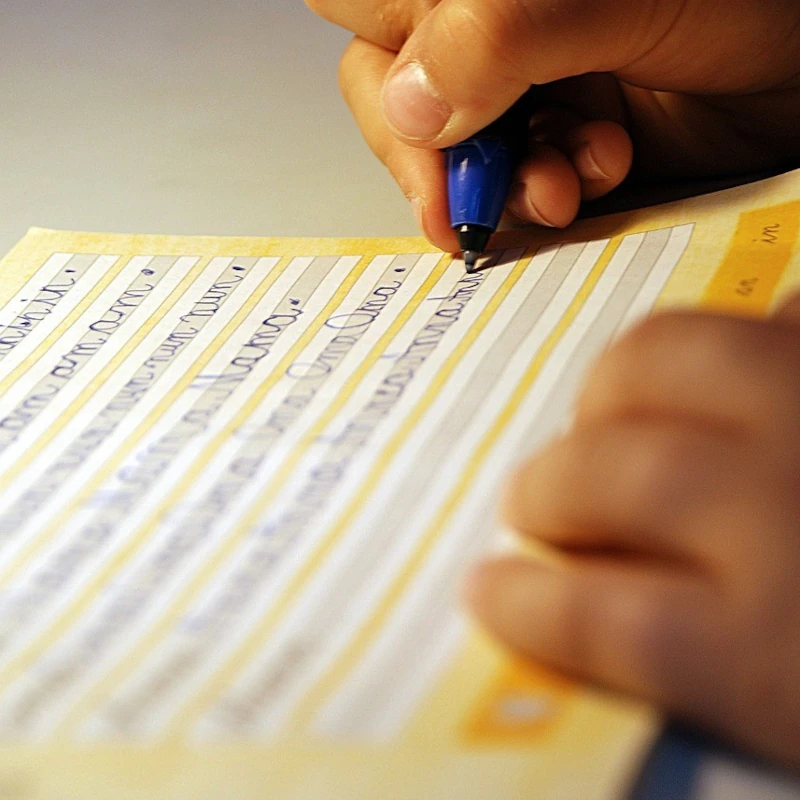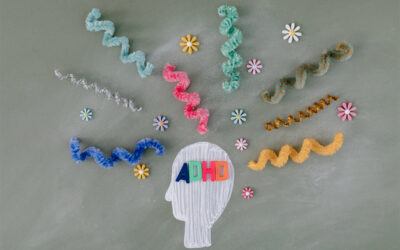Writing Disability and Dysgraphia Evaluation in Nova Scotia
Identify Writing Difficulties with a Dysgraphia Assessment
Writing struggles do not have to hold your child or teen back.
Our dysgraphia experts specialize in providing comprehensive evaluations, personalized recommendations, and practical strategies to address both learning and emotional needs. So your child or teen can succeed emotionally and academically.

Is writing extremely difficult for your child or teen?
When you need to jot down a note, you probably don’t think about what’s involved in physically getting your idea onto paper.
But handwriting isn’t simple. Multiple brain processes need to work and coordinate to help you get the idea from your head onto the paper.
Yet, some children and teens with writing challenges may face negative feedback. They may be described as ‘writing sloppily’ or ‘not trying.’
And without the right diagnosis, tools, or support, the writing challenges won’t get better. Instead, it may get worse. Your child or teen will be more vulnerable to giving up or avoiding classes or jobs that require too much writing because nothing they try on their own is working.
An untreated and undiagnosed writing disability (dysgraphia) can contribute to:
Academic Struggles |
Emotional Distress |
Social Challenges |
| Lower grades than expected due to incomplete or inaccurate work or lower test scores due to writing difficulties | Increased school anxiety | Withdrawing from peers, teachers, or parents |
| Not participating in class or volunteering if writing is involved to avoid judgment | Lower self-esteem | Avoiding activities or interactions that involve writing |
| Avoiding classes of interest because there’s too much writing | Increased frustration and stress | Struggling with self-consciousness |
| Problems with note-taking, completing written assignments, or organizing their thoughts for writing | Increased negative self-talk | Pursuing jobs below their ability level due to their writing challenges |
Yet, early intervention can help your child or teen work through their writing challenges. Allowing them to build their confidence, achieve their personal best, and pursue their goals and dreams.
What is dysgraphia?
Dysgraphia is a learning disorder and a neurological condition. It’s not related to intelligence, and it’s not caused by poor effort.
Children, teens, and adults with dysgraphia may have problems with handwriting, spelling, or both. The act of writing may also be physically uncomfortable or painful. Additionally, there are different types of dysgraphia, which can cause confusion or make it more difficult to spot by educators who are untrained in the different forms.
Dysgraphic children, teens, and adults may not have problems with reading or speaking. And they are often of average or above-average intelligence. However, dysgraphia can also co-occur with other learning disorders, like dyslexia.
The impact of dysgraphia can vary from person to person.

Some common signs of dysgraphia include:
Messy Handwriting: Your child or teen’s letters and words may be poorly formed, inconsistent in size, or difficult to read.
Slow and Laborious Writing: They may report writing is effortful, painful, takes too much time, and may cause fatigue or frustration.
Spelling Difficulties: Your child or teen’s writing may contain frequent spelling errors, even for simple or familiar words.
Trouble Organizing Their Thoughts on Paper: They may struggle to structure sentences, paragraphs, and the overall written content.
Avoiding Writing: Your child or teen may be reluctant to engage in writing activities, including homework, essays, taking notes, or hobbies or games involving writing.
Empower your child or teen with a dysgraphia evaluation.
A comprehensive dysgraphia evaluation helps you and your child understand their:
Unique learning needs
Specific writing challenges
Cognitive strengths
A dysgraphia assessment also provides an accurate diagnosis if appropriate for your child, insights into their functioning, and personalized recommendations designed for your child’s needs.
This clarity ensures your child has the right tools to build the skills they need to achieve their best at school and in the future. So they can confidently pursue their interests, goals, and dreams.
Accurate diagnosis of dysgraphia can help your child or teen:
Understand the underlying cause of their learning difficulties
Gain access to accommodations at school or work
Learn effective strategies to support their learning
Reduce feelings of self-blame, anxiety, or self-consciousness due to writing struggles
Confidently advocate for themselves and what they need throughout their life
Our dysgraphia experts can help you get the answers and support you and your child need.
We are licensed psychologists trained in assessment, learning, and learning disorders, including writing disabilities.
We create a safe, supportive environment so your child or teen feels comfortable, relaxed, understood, and motivated during the evaluation. So they can do their personal best.
Assessments are individualized to meet your child or teen’s needs. Our comprehensive approach helps you better understand your child’s functioning, including strengths. As a result, we can correctly identify what’s contributing to your child or teen’s struggles and tailor recommendations, accommodations, and strategies to your child’s unique situation.
Our goal is to provide you and your child with the right answers, support, and tools so you and your child feel empowered and confident. Because they can build the skills they need to achieve their full potential.
Get an accurate diagnosis and personalized recommendations to help your child or teen overcome their writing challenges.
Our dysgraphia assessment experts are here to help you and your child. Contact us to schedule an appointment or if you have additional questions.
Articles Related to Dysgraphia and Learning Disorders
Learn more about dysgraphia and learning disorders with resources on our blog.
What are the benefits of a learning, ADHD, or behaviour evaluation for my child?
As a parent, you do everything you can to support your child, including their learning. Yet, when a teacher or the school suggests your child get “evaluated,” it can lead to uncertainties and questions. Many parents are left wondering: How will this really help? Will...
Psychological, ADHD, and Learning Assessments: What happens after your child’s testing?
Psychoeducational evaluations help you, your child, and the school better understand their learning style, emotional needs, and behavioural functioning — so they can get the right support to thrive. There are many benefits of an evaluation for a child or teen. But how...
ADHD Assessment vs Screening Tools: What Your Child Needs
When there’s a problem, it’s natural to want to solve it as quickly as possible. So if your child’s school suggests a screen for attention deficit hyperactivity disorder (ADHD), you may first seek help from your child’s pediatrician or family doctor. An ADHD screening...
Frequently Asked Questions
Do I need a professional referral for dysgraphia testing?
Your child or teen’s pediatrician, school, or mental health provider may refer your child. However, a professional referral isn’t necessary unless required by your insurance provider.
How much does a dysgraphia evaluation cost?
Dysgraphia assessments vary by purpose and service providers. However, typically, a dysgraphia evaluation for a school-aged child is between $3150- $3,375.
Each evaluation typically involves 4 to 6 hours of direct assessment time with the client and then additional time for scoring, interpretation, and report writing by the psychologist. The whole process takes approximately 15 hours. Please call for more information about fees for various assessment services.
How do I explain the dysgraphia assessment to my child?
Many children and teens find the process interesting. That said, we want your child to be motivated and relaxed on the assessment day. To help prepare your child, you can:
- Listen to their concerns
- Avoid using the word “test,” instead consider using “activities”
- Let them know that the purpose is to help them better understand themselves or what they’re experiencing
- Normalize the experience by reassuring them that other children participate in evaluations, too
The psychologist will also explain the assessment, including addressing any concerns.



